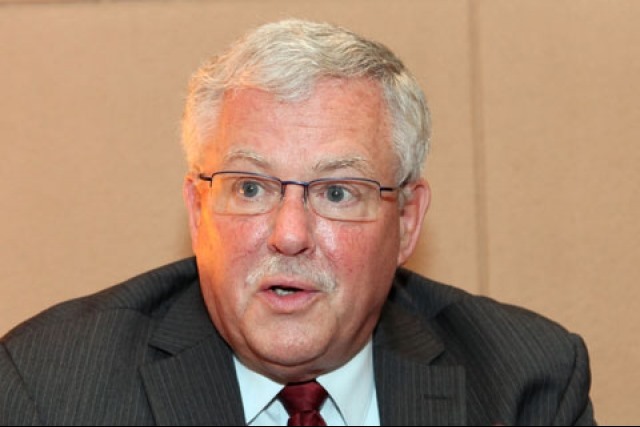 Opinion
Opinion

Dr Carl Thayer, emeritus professor at the University of New South Wales and an expert on Southeast Asia, talks to Vietnam News Agency ahead of the APEC Economic Leaders’ Meeting that will take place in Đà Nẵng City next month.
 |
Dr Carl Thayer, emeritus professor at the University of New South Wales and an expert on Southeast Asia. — Photo vneconomictimes.vn |
Dr Carl Thayer, emeritus professor at the University of New South Wales and an expert on Southeast Asia, talks to Vietnam News Agency ahead of the APEC Economic Leaders’ Meeting that will take place in Đà Nẵng City next month.
As you know, the APEC
The major concern for most APEC members is how to advance their goal of achieving further liberalization of trade and investment in the Asia-Pacific Region through the Free Trade Agreement in
APEC members need to commit to implementing the Lima Declaration on the FTAAP by developing multi-year work plans setting out key milestones.
What are the major challenges for APEC members in terms of trade facilitation, economic development within the bloc and with outside partners?
The major challenges to trade facilitation and economic development are protectionist sentiment in countries experiencing low rates of growth and resistance to new and higher standards such as embodied in the now defunct Trans Pacific Partnership. These higher standards include emphasis on liberalizing services, protection for intellectual property rights, greater emphasis on opening up for ecommerce and digital trade and women’s empowerment. Xi Jinping has taken a global leadership role in supporting globalization while Donald Trump has favored protectionism through his America First policy.
APEC members need to completely support the World Trade Organization Agreement on Trade Facilitation to lower costs by improving how the global supply chain functions and eliminate non-trade barriers.
Do you think this could be a tough time for the host Việt
Việt
What will be the major breakthrough in terms of agenda and discussion among top leaders at the APEC Summit 2017 this time?
ASEAN Economic Ministers set four major priorities: promoting sustainable, innovative and inclusive growth, deepening regional economic integration, strengthening the competitiveness and innovation of micro, small and medium-sized enterprises in the digital age, and enhanced food security and sustainable agriculture in response to climate change. Each of these areas has seen intensive in-depth discussion by work groups prior to the summit. The major breakthrough will be to secure consensus by APEC members that national reforms and adherence to higher international standards are necessary to implement these priorities and to set a putative deadline to work towards full implementation. Individual economies must publicly commit themselves to attain these goals.
What should Việt
Việt
What should APEC leaders do to enhance the bloc’s connection for trade and economic development?
APEC leaders must reject protectionism and step up the pace of reform by adopting higher standards designed to facilitate trade at a time of structural reform, such as services and digital trade. This will not be easy. This means a commitment to open up economies on the basis of national work plans with putative deadlines.
Do you have any further comments on APEC and Việt
Việt
* Dr Carl Thayer is Emeritus Professor at the University of New South Wales, Australia, and Director of Thayer Consultancy.




